 CROPPED.jpg)
Source: www.nhs.ukconditionsdementiadiagnosis-tests
There are thought to be approximately 850,000 people in the UK with dementia and the condition affects 1 in 6 people over 80. Because people are living longer, the number of people with dementia is increasing and it is estimated that by 2025, around 1 million people in the UK will be affected.
Dementia is a not a normal part of getting older: increasingly forgetfulness, particularly over the age of 65, is not uncommon and memory can be temporarily affected by tiredness, stress, certain illnesses or medications. If it happens occasionally it’s not likely to be too significant, but if it's affecting normal life or is causing anxiety, it might be sensible to consult with a GP as it might be an early sign of dementia.
Dementia is a syndrome (a collection of symptoms) which signals a progressive decline of brain function and many of the symptoms are related to thinking (‘cognitive problems’). Symptoms may include:
There are many different causes of dementia and everyone experiences dementia differently with different rates of progression and symptoms. The two most common are Alzheimer's disease and vascular dementia, which together make up the vast majority of cases. However, other rarer causes exist each of which may damage the brain in a different way and the exact pattern of symptoms will vary according to which part of the brain is affected.
Common EARLY symptoms of dementia, include:
Symptoms are often mild and may worsen only very slowly. If you're at all worried about memory problems or other symptoms you should talk to your GP.
Symptoms in the LATER stages of dementia - as dementia worsens, difficulties with thinking and communication often become severe and eventually, the person is likely to neglect themselves and require constant care and attention. Common symptoms include:
Alzheimer's disease - common symptoms include memory problems, repetitively asking the same questions, difficulty with organisation and planning, confusion in new environments, difficulty finding the right words, problems with numbers and money, anxiety and social withdrawal. Find out more about Alzheimer's disease.
Vascular dementia is the second most common cause of dementia, after Alzheimer's, and the symptoms may be similar, although memory loss may not be as prominent in the early stages. The rate of progression can vary, with symptoms sometimes coming on very quickly, but in other cases developing slowly over many months or years. Specific symptoms can include:
Find out more about vascular dementia.
Lewy body dementia has many of the symptoms of Alzheimer's disease, but the following symptoms may be particularly prominent:
Find out more about dementia with Lewy bodies.
Frontotemporal dementia - most cases are diagnosed in people aged 45-65. Early symptoms may include:
Find out more about frontotemporal dementia.
There's no simple, single test for dementia. A diagnosis is based on a combination of assessments and tests which may be done by a GP or a specialist at a memory clinic or hospital.
At present there is no cure for dementia (see FAQs, below, to find out about medication and dementia). However, there are good reasons why it is important to make a diagnosis:
An initial assessment is usually done by a GP, however if you're referred to a specialist, a more detailed history will be taken, if possible, with someone who knows you well so they can give background information and comment on changes you may not have noticed.
There will be questions about when symptoms started and whether they're affecting daily life, as well as on general health and medications as these can affect thinking.
People with symptoms of dementia are given tests known as cognitive assessments to check their mental abilities. There are several different tests, such as the ‘General Practitioner Assessment of Cognition’ (GPCOG), however, these tests alone can't diagnose dementia. Moreover, the results are not always accurate indicators of mental function and can be affected by a number of unrelated factors such as education, tiredness and anxiety, amongst others.
Most tests involve a series of pen-and-paper tests and questions, aiming to assess several different mental abilities, including:
To exclude a treatable cause for confusion, a number of blood tests are likely to be checked, including:
If your doctor thinks you may have an infection, they may also ask you to do a urine test or other investigations.
Brain scans are often used for diagnosing dementia once the simpler tests have ruled out other problems.
Even if a brain scan looks normal, it doesn't rule out a diagnosis of dementia. Not everyone will need a brain scan and on their own, brain scans can't diagnose dementia, but form part of the wider assessment, for instance they may be used to rule out other possible cause of symptoms, such as a stroke or a brain tumour.
The most common types of scan are CT (computerised tomography) and MRI (magnetic resonance imaging). Each is based on different technology and has different advantages and disadvantages. However, in general the CT scan tends to be quicker and more convenient while the MRI provides more detailed information, but some people can find it unpleasant and, in some cases, will not be a tolerate the full scan.
Rarely, other tests may be arranged including a SPECT scan or a PET scan; while If a specialist is worried that epilepsy may be contributing to symptoms, an EEG may be done to record the brain's electrical signals (brain activity). However, most people won't need these types of tests.
A diagnosis of dementia will have a big impact on your life and that of the people around you. Although your ability to deal with everyday life may be affected, with the right support at the right time, it may be possible to live independently for many years. In general, to help you to stay positive it is good to focus on the things you can still do and enjoy. However, it is also important for you and your carers to deal with the problems which may face in a realistic and practical way.
Following a diagnosis of dementia, you will be given advice on how to deal with the symptoms, as well as information about local support and services that be helpful.
You may have many years of living independently ahead of you. But while you're still able to make your own decisions, it's a good idea to make plans so that your wishes for your future care can be respected. Things that may need to be considered include:
Find out more about dementia and legal issues
At first, many people are able to carry on with life at home in much the same way as before. However, as the illness gets worse, it is likely that you will find it more difficult to cope at home without extra help with daily activities, such as housework, shopping and cooking. The first step is to apply for a ‘needs assessment’ which will help identify what could help. (see ‘Care and Support’ below for more information).
Problems with thinking and memory loss can be distressing, but there are practical tips that can help:
After a diagnosis of dementia, you may be worried about whether you'll cope at work and you should talk to your employer as soon as you feel able to do so.
If you want to continue to work, under the Equality Act 2010, your employer has to make "reasonable adjustments" in the workplace to help you do your job; for example, changing your working hours, re-scheduling meetings at different times, changing you to a different role that may be less demanding
Find out more on working and dementia.
If you've been diagnosed with dementia, you are legally required to immediately inform the DVLA and your insurance company.
Some people with dementia prefer to give up driving because they find it stressful, however, others with mild symptoms will want to continue driving. This will usually be possible - the DVLA will ask for medical reports and possibly a special driving assessment to decide whether you can continue driving. Learn more: driving and dementia
When you feel ready, it's usually best to tell people you know about your diagnosis and how it’s affecting you.
Most people will be sympathetic and will want to help, however you should be aware that they may find it difficult and that some people will treat you differently than they did before. This may be because they don't fully understand dementia, so try to explain what your diagnosis means and the ways in which they can support you. If they offer to help, you could discuss practical things they could do, like driving you to a weekly activity or the shops.
Try to keep in touch with people and carry on with social activities, such as going to the theatre or cinema, or being part of a walking group or choir.
Many communities are now more dementia-friendly. For instance, cinemas put on dementia-friendly screenings of films and leisure centres run dementia-friendly activities like swimming sessions.
You may also find that you lose touch with some people you knew before, which may be difficult for you, however you can also meet new people – it’s a good idea to join a local dementia-friendly group, perhaps at a memory café or community centre. You can share experiences and use tips from others who are dealing with dementia.
Find out more about dementia and relationships.
It's still important to look after your general health when you have dementia and you should take sensible measures in the same way as anyone else: eat a healthily and drink plenty of fluids, exercise regularly and get enough sleep. Remember that depression is very common in dementia so talk to your GP if you need help.
See your GP if you feel unwell, as illnesses like chest or urine infections can worsen confusion if not treated.
A diagnosis of dementia can come as a terrible shock; however, there are sources of help and support for everyone involved.
In the early stages of dementia, you may be able to carry on with your life much as before. However, as the illness progresses, it's likely that you'll need extra help with daily activities, such as housework, shopping and cooking.
The first step is to contact social services at your local council for an assessment of the problem. There are two types of assessment:
1. ‘Needs Assessment’ - for the person who needs care.
2. ’Carer’s Assessment’ - for people who look after someone else.
It's advisable to do this soon after your diagnosis as an assessment can identify things you may not have been aware of.
A number of organisations and forums can be contacted for useful information as well as emotional and social support (see ‘Useful Links’ below).
If you find you need help to manage everyday tasks like dressing, washing or cooking, you should get a Needs Assessment. First, you’ll need to contact social services at your local council and they’ll speak to you about the problems you’re having. Afterwards, they’ll write a care and support plan outlining the support they think you will need.
Ideally, this assessment should take place face to face and it's generally a good idea to have a relative or friend with you to give extra background information and to take notes for you.
If the needs assessment identifies you need extra help, you will then have a financial assessment (means test) to see how much you'll contribute to the cost of your care.
Find out more about preparing for a Needs Assessment.
If you care for someone with dementia, you may qualify for a Carer's Allowance from your local council.
A carer is someone who looks after a person who is ill, elderly or disabled, including family members. A carer may give emotional support, for instance by sitting with someone and talking with them, or they may help with practical tasks like:
To decide whether you qualify for a Carer’s Allowance, you will need to have a Carer's Assessment, which is free and anyone over 18 can ask for one.
As part of the Carer's Assessment, someone from the council (or an organisation the council works with) will ask about what your caring role involves. They are likely to ask about how it affects your physical and mental health, work, free time and relationships. The assessment is usually face to face, but may be done over the phone or online. The assessments usually last at least an hour.
It may help if you have someone with you during the assessment. This could be the person you care for, a friend or relative. You could also use an advocate to speak up on your behalf, help you fill in forms and sit with you in meetings and assessments. They're often free.
A Carer's Assessment is separate from a Needs Assessment for the person who requires care, but you can ask to have them both done at the same time, if you wish. Useful information to have available for a Carer’s Assessment includes:
Find out how to get a carer's assessment.
Following a diagnosis of dementia, you should have a care plan. This should set out what sort of care you and people who care for you might need.
After a Needs Assessment has been carried out, a care and support plan is written up and should be sent to you within a few weeks. The Care Plan should include:
Your care plan should be reviewed at least once a year.
With adequate support, many people with mild-to-moderate dementia are able to stay in their own home and being in familiar surroundings can help people cope better. However, as the symptoms of dementia worsen, many people eventually require support in a care home.
Depending on their needs, this could be a residential care home or a nursing home that offers services for people with dementia. If you've been caring for a partner or relative with dementia, this can be a difficult decision to take and if you remain uncertain what to do, you may be able to arrange a trial period in a care home. If the person does move to a care home, you will still be involved in their care.
Your local council will have to carry out another needs assessment to confirm the need to go into a care home and a financial assessment to decide how much the person will have to pay towards their care home fees.
Residential and nursing homes are inspected by the Care Quality Commission (CQC). You can read their reports of care homes in England. Find out more about choosing the right care home.
Admiral Nurses are registered nurses and experts in dementia care who work in the community, care homes, hospitals and hospices. They give practical, clinical and emotional support to families living with dementia to help them cope and to improve the quality of their lives.
Learn more about ‘What is an Admiral Nurse' and how can they help?’ (See the ‘Useful Links’ section, below, to learn how to contact an Admiral Nurse).
Caring for someone with dementia can be difficult but resources are available to help and in the right circumstances caring can be rewarding.
If you are the partner, parent or close friend of the person with dementia, you may not regard yourself as a carer, particularly in the early stages. However, as symptoms progress, you are likely to need help to cope with the changes in behaviour. It will be helpful to:
If you look after someone, you can have a ‘Carer's Assessment’ to see what help might be available. Possible recommendations might include:
A free Carer's Assessment is available to anyone over 18. Find out more about carer's assessments.
Caring for someone with dementia is difficult and it's important to remember that you need to look after yourself – in the long-run becoming anxious, exhausted or physically unwell will not help the person that you’re caring for. Try to avoid becoming isolated – maintaining an active social life is good for you and ultimately the person you’re caring for. Things that you can do that might help:
Find out more about talking therapies; Find a psychological therapies service in your area.
Everyday Tasks - in the early stages of dementia, the effects on the person’s lifestyle may not be too severe, but as symptoms worsen, the person may become stressed and scared. Helping them maintain their abilities and an active social life can help their well-being.
What you can do: let the person you are caring for help with everyday tasks, such as: laying the table, shopping, walking the dog and gardening. Memory aids, such as labels and signs on cupboards, drawers and doors, can help the person remember where things are.
As dementia affects a person’s ability to communicate, you may have to change the way you talk to and listen to them.
Read more about how to make your home dementia-friendly or communicating with someone with dementia.
Eating and Drinking - people with dementia may become dehydrated because they don't realise they're thirsty. This increases the risk of headaches, constipation and urinary tract infections (UTIs). These can, in turn, lead the symptoms of dementia deteriorating. Food-related problems include:
Causes include confusion, but also physical problems such as sore gums or difficulty swallowing.
What you can do: try these tips to make meal times less stressful:
Incontinence and Toileting - people with dementia may often experience problems with both urinary incontinence and bowel incontinence which can be difficult to deal both practically and emotionally, for both the person with dementia and their carer.
Sometimes the problem may be one of awareness or difficulty finding the toilet. However sometimes there may be a more specific cause which will need to addressed, for instance:
What you can do: although it may be hard, try to be patient. Tips include:
Read more about toileting problems
Washing and Bathing - some people may need help with washing. They become anxious about:
What you can do: the following tips may help
Read more about washing and bathing
Sleep Problems
Dementia can cause problems with a person's "body clock" and affect people's sleep patterns. People with dementia may get up repeatedly during the early-hours but not be aware it's night-time and hence become disorientated.
What you can do: sleep disturbance may settle over time, however in the meantime, you could try:
Dementia can cause a number of practical problems which can vary from person to person and with the stage of the progression. In the early stages, equipment will generally be used to support the person in their home but as the condition worsens and they become less active and more dependent, equipment will tend to be important to keep them safe and to assist their Carers.
These include products that help with day-to-day tasks, such as:
People with dementia may find it increasingly difficult to manage taking their medications. Different sorts of pill boxes exist which can be used to organise their tablets to make life simpler for them (and/or their carers).
Ornamin - Plates and Mugs
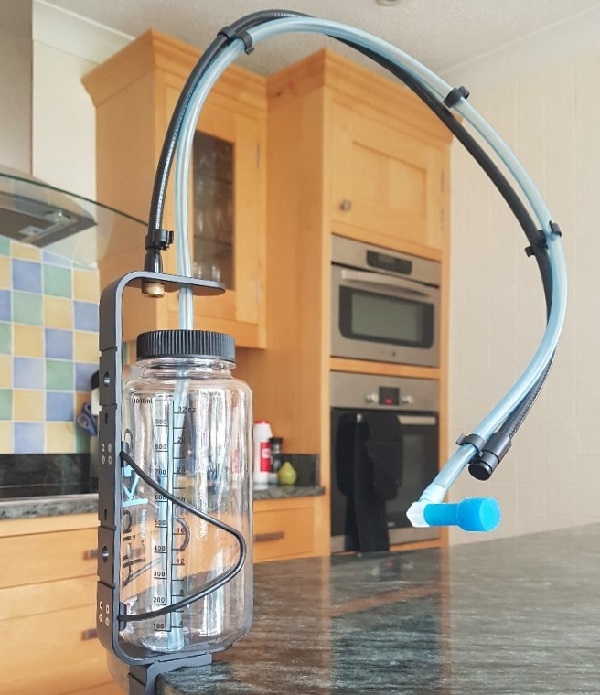
Drinkup20 Hands-free Drinking System
Some people with dementia suffer from continence problems. In some cases, these are mild and can be helped with a simple discrete insert. However, in other cases the problems are more severe, causing embarrassment and issues with hygiene. Dealing with the problems associated with incontinence can be time consuming and unpleasant, the right choice of products can save time and make the carer’s life more pleasant.
At Fortuna we sell a large variety of products for incontinence which broadly fall into 3 main categories:
Learn more about products to manage Continence Problems.
The quality of life of dementia sufferers and their carers can be markedly improved by choosing appropriate furniture; examples include:
Smartphones and tablets Many people with dementia find using a mobile phone or tablet helps. These devices often have a range of apps that can help people, such as an alarm clock, notes function and a reminder function.
There are also many apps specifically designed to help people with dementia – and their carers – including dedicated games, digital photobooks and reminiscence aids.
Voice-controlled virtual assistants can also help you stay independent. For example, they can remind you to take medicines and provide answers to questions about weather or train timetables.
Telecare systems help to keep you safe. We work with Frequency Precision to advise on the right system for your needs; examples include:
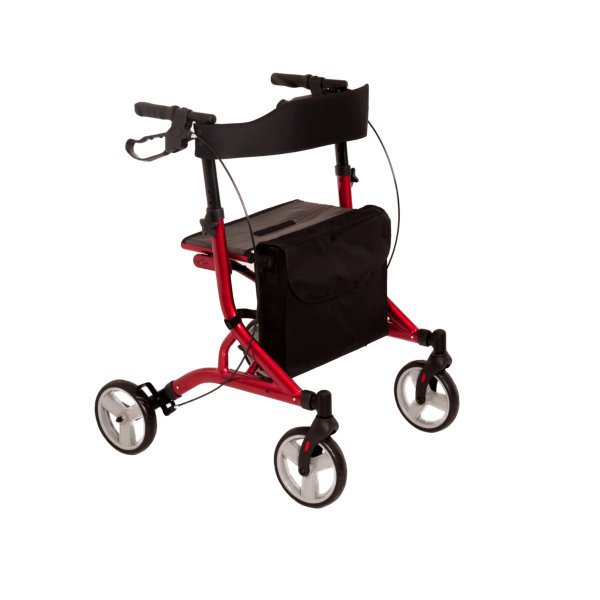
Walking aids: Rollator
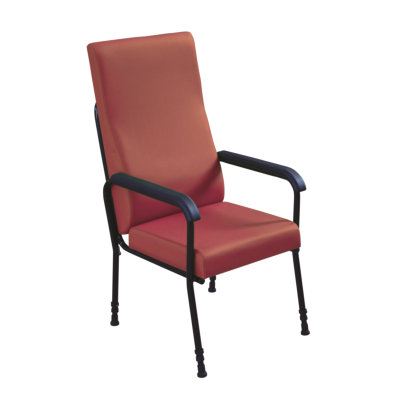
High back chair
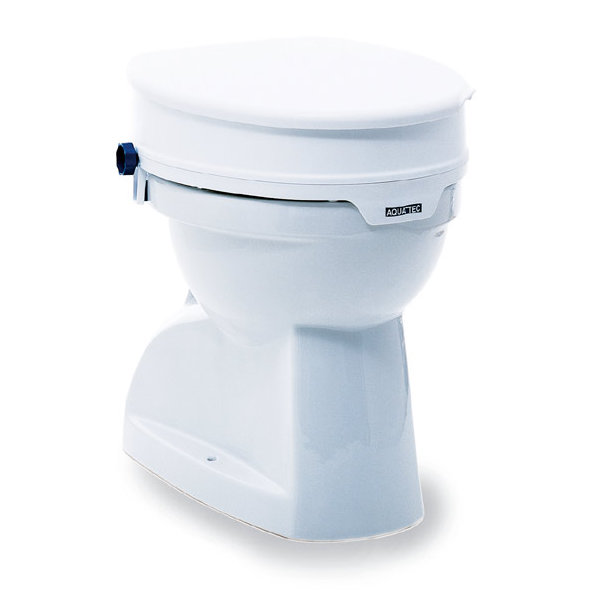
Raised toilet seat
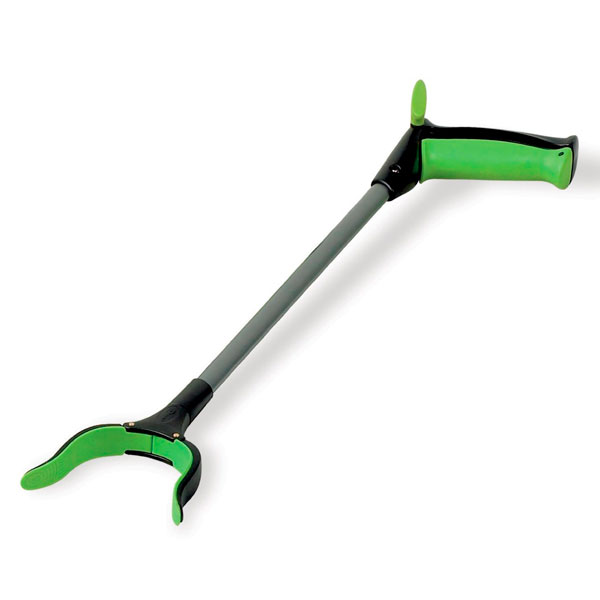
Reacher
The evolving symptoms of dementia mean that equipment may sometimes only be needed for a few months and therefore rental may be a particularly useful option, allowing equipment to be returned when it is no longer required, to keep costs down for the user.
Although most people will rent for a few weeks or months, rentals can be as short as 2 days or, if you find it easier to let us look after your long-term equipment needs, can go on for years.
Even if you don’t feel that you need equipment at the moment, you are welcome to make an appointment to have a look around and chat with one of our advisors so you can get a feel of what’s available for people who have dementia, should it be needed.
Jane’s Story, or how we helped her see her friends again
Lorna’s Story, or how we helped her family stop buying chairs – to be posted
Scenario – to follow
A. No medications have been shown to prevent or cure dementia.
Medications may be used to treat the behavioural and cognitive symptoms, but have not been proved to alter the underlying disease process. For example, acetylcholinesterase inhibitor drugs, such as Donepezil, may be useful for the symptoms of certain types of dementia, however the benefit is likely to be small and side effects including slow heart rate and fainting may occur in some people.
Symptoms such as depression, sleep disturbance and difficult or dangerous behaviour might improve with specific prescription drugs.
A. You are welcome to come to our showroom and see the equipment in action. If you are still unsure, we offer a wide range of products available for rent, either for periods as short as 2 days to longer than a year.
A. If you have a long-term medical condition you do not need to pay VAT on most products that we sell. We can advise you this and help you with the simple paperwork.
A. Dementia may, sometimes, progress rapidly and equipment needs may change over time. We offer both rental option and sometimes a buy-back options. We will be happy to advise you on the choices that are available.
NHS Dementia Guide - this excellent website is an excellent source of information www.nhs.uk/conditions/dementia/
Alzheimer's Society - A valuable source of information on all forms of dementia with advice on how to find help and support near you. Alzheimer's Society's National Dementia Helpline: 0300 222 1122
Dementia UK is a national charity that aims to improve the life for people with dementia. It offers advice and support to families who are living with dementia through its Admiral Nurses
Alzheimer's Research UK carries out dementia research but also answers questions about dementia and dementia research
Age UK has advice on a range of topics, including advance care planning, benefits and choosing a care home, as well as information on local activities and services for those with dementia. Contact Age UK Enfield
The Carers Trust provides information and advice for carers, including how to get support for yourself.
Carers UK is a national charity for carers, providing information and advice from benefits to practical support.
Admiral Nurse - call the free Helpline on 0800 888 6678 to talk to an Admiral Nurse or email helpline@dementiauk.org. For carers, people with dementia, and health and social care professionals.
Wikipedia - For more information about dementia
Joining a Forum – may be a helpful way to share your experiences of living with dementia or caring for someone with dementia, as well as learning about what others are going through:
Talking Point is the Alzheimer's Society's forum for people with dementia
Carers UK forum has been set up for Carers to share their experiences.
Dementia Books are available for people diagnosed with dementia, their relatives and carers. GPs and other health professionals can recommend titles from a list of 37 books on dementia on prescription
Find out more about the Reading Well Books on Prescription for dementia.
Dementia Connect – the Alzheimer's Society online directory will help you find out about dementia-specific services near you.
Age UK Enfield provide a range of services and local support.
If you decide to leave work, advice may also available about your pensions and benefits from:
We stock a wide range of products, with over 1000 lines available in the showroom.
Come and TRY out the products to see what suits your needs.
Our friendly highly-trained staff will help you make a choice which is right for you.
Copyright © 2026 Fortuna Mobility | All rights reserved.